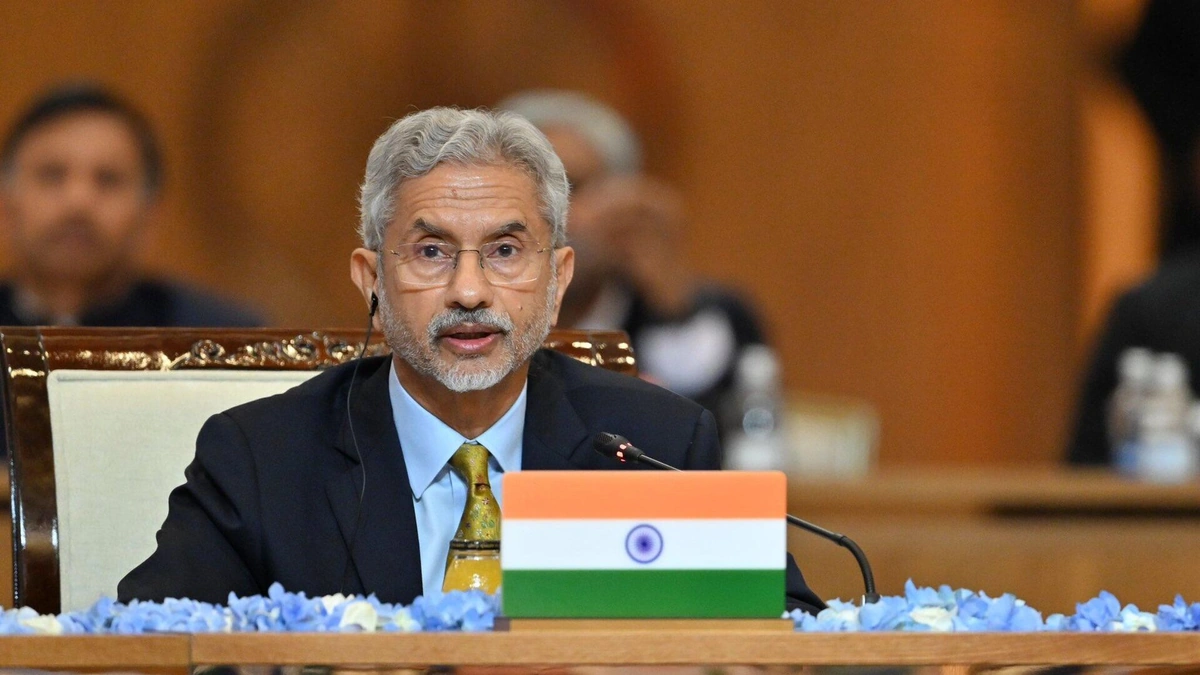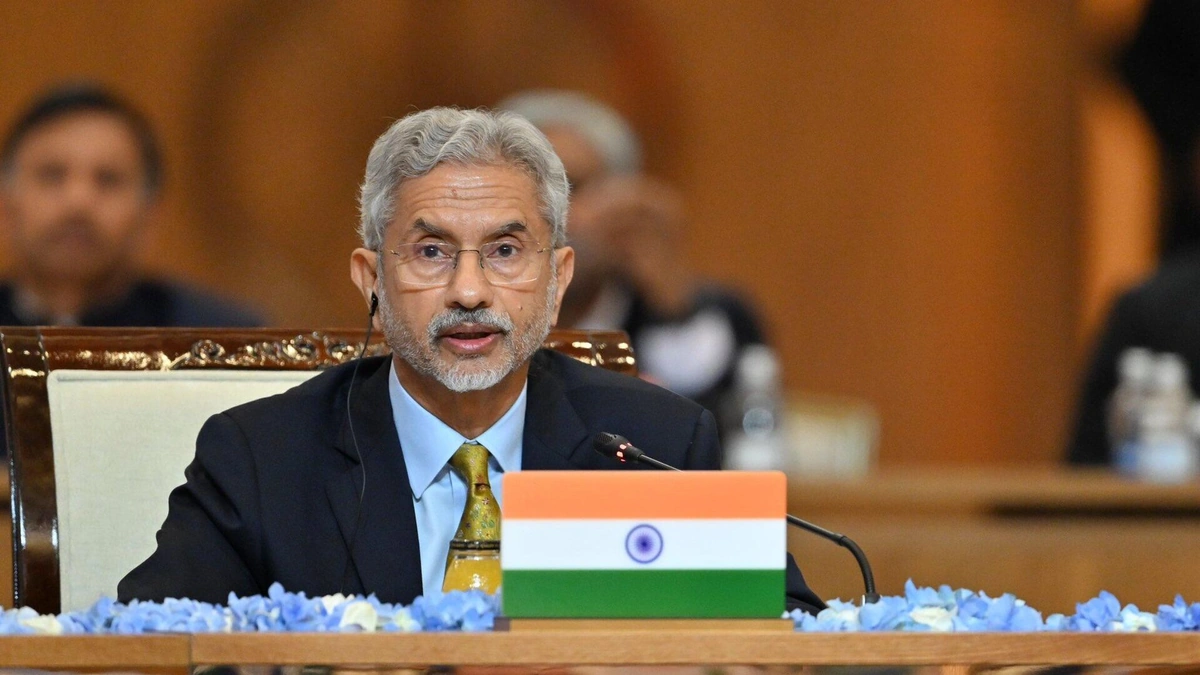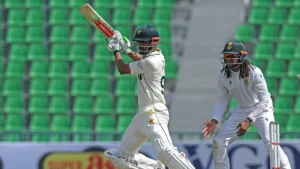Jaishankar Emphasizes Terror Threat, Upgrades Kabul Mission to Embassy
Okay, let’s talk about something that’s been brewing on the international stage – India’s evolving stance in Afghanistan. Foreign Minister S. Jaishankar isn’t just making polite diplomatic noises; he’s dropping some serious truth bombs about the terror threat emanating from the region. And here’s the kicker: India’s upgrading its diplomatic presence in Kabul from a “technical team” to a full-fledged embassy. What’s the real story here? What’s the hidden context? That’s what we’re diving into today.
The “Why” Behind the Upgrade

So, why is this happening now? The official line is all about India’s “historical connections” and developmental assistance to Afghanistan. And that’s partially true. But, let’s be honest, there’s a lot more at play here. The move comes at a time when regional security is increasingly precarious. You see, India has legitimate concerns about the rise in terrorist activities in Afghanistan, which could easily spill over into Kashmir. As Jaishankar himself pointed out, the international community needs to take this threat with the seriousness it deserves. This isn’t just about being neighborly; it’s about protecting India’s national interests.
The decision to upgrade the mission signals a clear message: India isn’t abandoning Afghanistan. Even with the Taliban in power, India wants to be a key player in shaping the country’s future and, more importantly, ensuring it doesn’t become a breeding ground for anti-India terror groups. It’s a bold move, considering many nations have scaled back their diplomatic presence. But that’s what makes it strategic.
Terror Threat | A Clear and Present Danger
Terrorism , let’s face it, is the elephant in the room. When Jaishankar emphasizes the terror threat , he isn’t just making idle comments. He’s highlighting a very real and present danger. Several reports suggest that various terror groups, including those with links to Pakistan, have found safe havens in Afghanistan. These groups not only threaten Afghanistan’s stability, but also pose a direct risk to India. Here’s the thing: India can’t afford to ignore this. A destabilized Afghanistan provides fertile ground for these groups to flourish, potentially leading to increased cross-border terrorism. Therefore, keeping a close eye on the situation and engaging with relevant stakeholders is not just diplomacy; it’s a necessary security measure.
India’s Strategic Play | Balancing Act
What fascinates me is how India is managing to walk this diplomatic tightrope. On one hand, it’s engaging with the Taliban, which, let’s be honest, wasn’t exactly India’s favorite regime. On the other hand, it’s also reinforcing its commitment to the Afghan people through developmental aid and cultural ties. It’s a balancing act that requires shrewd diplomacy and a clear understanding of the region’s complexities. India is trying to ensure that its assistance reaches the Afghan people directly, without legitimizing the Taliban regime. It’s a delicate dance , but one that’s crucial for maintaining India’s influence and goodwill in the region.
The Road Ahead | Challenges and Opportunities
The upgraded embassy in Kabul faces several challenges. Security is a major concern, given the volatile situation in Afghanistan. Ensuring the safety of Indian diplomats and staff will require close coordination with the Taliban authorities. And let’s be real, that’s not going to be easy. But, there are also opportunities. India can play a crucial role in facilitating dialogue between different Afghan factions and promoting regional stability. By providing humanitarian assistance and supporting development projects, India can win hearts and minds, strengthening its long-term ties with the Afghan people. The role of regional players like India in stabilizing Afghanistan is critical.
Furthermore, the international reaction to India’s move will be interesting to watch. How will countries like the US, Russia, and China view India’s enhanced presence in Kabul? Their support, or lack thereof, could significantly impact India’s ability to achieve its objectives in Afghanistan. It’s a geopolitical chess game, and India is making a calculated move. According to a report by the United Nations Security Council , several terrorist organizations maintain active cells within Afghanistan.
Ultimately, Jaishankar’s emphasis on the terror threat and the upgrading of the Kabul mission underscore India’s commitment to playing a proactive role in shaping Afghanistan’s future. It’s a high-stakes game, but one that India believes is worth playing. The stability of the region, and indeed India’s own security, may well depend on it. And let’s be honest, that’s a gamble worth taking. The safety of Indian diplomats and staff will require continuous risk assessment and mitigation strategies.
FAQ Section
Frequently Asked Questions
Why is India upgrading its mission in Kabul now?
India is upgrading its mission to a full-fledged embassy to maintain its presence, address the terror threat, and continue its developmental assistance to the Afghan people.
What are India’s main concerns regarding Afghanistan?
India is primarily concerned about the rise in terrorist activities in Afghanistan and the potential spillover effects into Kashmir and other parts of the region.
How is India balancing its engagement with the Taliban?
India is engaging with the Taliban while also ensuring that its assistance reaches the Afghan people directly, without legitimizing the regime. It’s about balancing pragmatism with values.
What role can India play in stabilizing Afghanistan?
India can facilitate dialogue between Afghan factions, provide humanitarian assistance, and support development projects to promote regional stability.
What are the potential challenges for the upgraded embassy?
Security is a major challenge, along with coordinating with the Taliban authorities and ensuring the safety of Indian diplomats and staff.
How does this move affect India’s relationship with other countries?
The international reaction to India’s move will be closely watched, as support from countries like the US, Russia, and China can impact India’s ability to achieve its objectives in Afghanistan.













